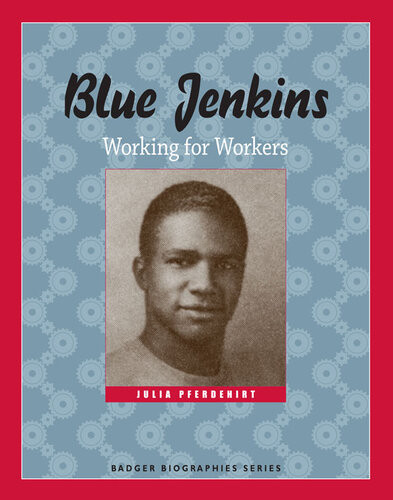

Most ebook files are in PDF format, so you can easily read them using various software such as Foxit Reader or directly on the Google Chrome browser.
Some ebook files are released by publishers in other formats such as .awz, .mobi, .epub, .fb2, etc. You may need to install specific software to read these formats on mobile/PC, such as Calibre.
Please read the tutorial at this link: https://ebookbell.com/faq
We offer FREE conversion to the popular formats you request; however, this may take some time. Therefore, right after payment, please email us, and we will try to provide the service as quickly as possible.
For some exceptional file formats or broken links (if any), please refrain from opening any disputes. Instead, email us first, and we will try to assist within a maximum of 6 hours.
EbookBell Team

4.8
64 reviewsWhen William "Blue" Jenkins was only six months old, he moved with his parents from a Mississippi sharecropper's farm to the industrial city of Racine, Wisconsin with dreams of a new life. As an African-American in the pre–civil rights era, Blue came face to face with racism: the Ku Klux Klan hung a black figure in effigy from a tree in the Jenkins family's yard. Growing up, Blue knew where blacks could shop, eat, and get a job in Racine—and where they couldn't. The injustices that confronted Blue in his young life would drive his desire to make positive changes to his community and workplace in adulthood.
This addition to the Badger Biographies series shares Blue Jenkins's story as it acquaints young readers with African-American and labor history. Following an all-star career as a high school football player, Blue became involved in unions through his work at Belle City Malleable. As World War II raged on, he participated in the home-front battle against discrimination in work, housing, and economic opportunity. When Blue became president of the union at Belle City, he organized blood drives and fought for safety regulations. He also helped to integrate labor union offices. In 1962, he became president of the U.A.W. National Foundry in the Midwest, and found himself in charge of 50,000 foundry union members.